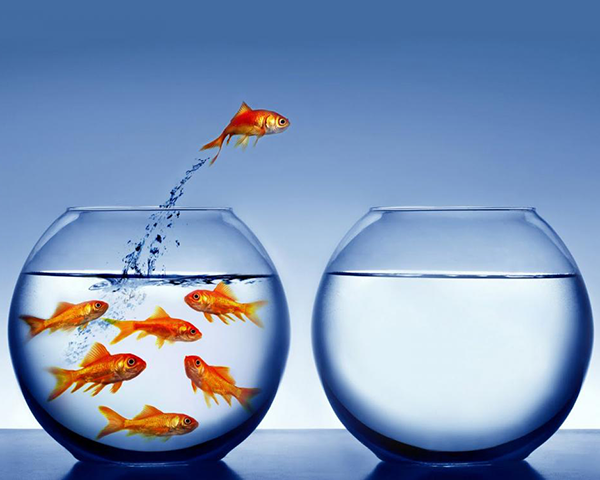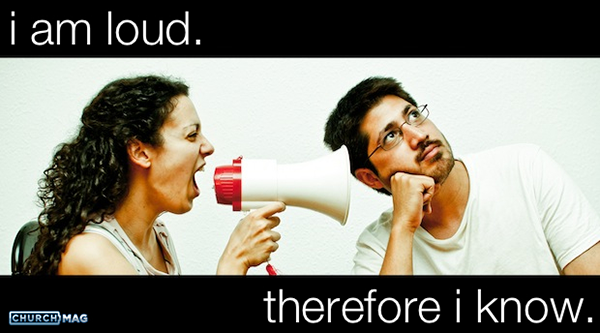Introverted or extraverted…which are you? Take a reflective minute to ask yourself which of the following descriptions seems more natural and comfortable for you?
Extraversion
I like getting my energy from active involvement in events and having a lot of different activities. I’m excited when I’m around people and I like to energize other people. I like moving into action and making things happen. I generally feel at home in the world. I often understand a problem better when I can talk about it out loud and hear what others have to say.
The following statements generally apply to me:
- I am seen as “outgoing” or as a “people person.”
- I feel comfortable in groups and like working in them.
- I have a wide range of friends and know lots of people.
- I sometimes jump too quickly into an activity and don’t allow enough time to think it over.
- Before I start a project, I sometimes forget to focus clearly on what I want to do and why.
Introversion
I like getting my energy from dealing with the ideas, pictures, memories, and reactions that are inside my head, in my inner world. I often prefer doing things alone or with one or two people I feel comfortable with. I take time to reflect so that I have a clear idea of what I’ll be doing when I decide to act. Ideas are almost solid things for me. Sometimes I like the idea of something better than the real thing.
The following statements generally apply to me:
- I am seen as “reflective” or “reserved.”
- I feel comfortable being alone and like things I can do on my own.
- I prefer to know just a few people well.
- I sometimes spend too much time reflecting and don’t move into action quickly enough.
- I sometimes forget to check with the outside world to see if my ideas really fit the experience.
So I’m a closet introvert…
“You make a great second impression!”
The first time I heard it I just smiled and nodded wondering how to interpret this comment. By the third time I heard something similar, I realized that it wasn’t an insult. It was an acknowledgement that I am an introvert. And I seem to be living in an extraverted world.
Susan Cain expressed the problem well: When I was in grade school all of the desks were in long rows facing the front of the class and we were expected to do our work almost in solitude. Nowadays, a typical classroom has pods of desks – four to six kids all facing each other as they are working on countless group assignments. Even in subjects like math and creative writing, kids are now expected to act more like committee members.
The same thing is true in our workplaces. Now, most of us work in open plan offices, without walls, where we are subject to the constant noise and gaze of our coworkers. And when it comes to leadership, introverts are routinely passed over for leadership positions.
Emotional Intelligence: the new measure of leadership.
Like Bob Dylan said, “Times they are a-changin’.” More and more we are being measured by Emotional Intelligence and other social skills.
Ronald Riggio, writing in Psychology Today, contends “while extraversion is predictive of many positive social outcomes, it may not be extraversion itself that matters. Instead, it may be possession of social skills or competencies that are better predictors of social outcomes.” Riggio’s recent research concluded that when social skills such as emotional intelligence were measured, “extraversion no longer predicted leadership. In short, only extraverts who possessed high levels of social skills were more likely to be effective leaders.”
According to Psychology Today, Emotional Intelligence is the ability to identify and manage your own emotions and the emotions of others. It includes the ability to:
- Identify your own emotions and those of others;
- Harness emotions and apply them to tasks like thinking and problems solving; and
- Manage emotions, including the ability to regulate your own emotions, and the ability to cheer up or calm down another person.
Introversion vs. Extraversion
Carl Jung’s work popularized the terms introversion and extraversion. Most psychological theorists agree that we all have some degree of both; however, we often tend to lean one way or another.
Psychologist Kendra Cherry explains the difference this way: “Introverts tend to be more quiet, reserved and introspective. Unlike extraverts who gain energy from social interaction, introverts have to expend energy in social situations. After attending a party or spending time in a large group of people, introverts often feel a need to “recharge” by spending a period of time alone.”
Being introverted is not the same as being shy. Shyness is fear of social judgment and the assumption that people are judging you negatively.
So you have introverts on your team? What now?
One third to one half of us are introverts. What can we do to manage the introverts on our team?
- Don’t rely on group-work.
- Schedule downtime periods during big events.
- Respect the need for quiet in the office.
- Don’t make socializing compulsory.
- Give everyone a chance to speak.
- Solicit written communications.
- Recognize that silence is OK…it doesn’t mean disapproval or disagreement.
- Understand that there is no correlation between being the best talker and having the best ideas.



